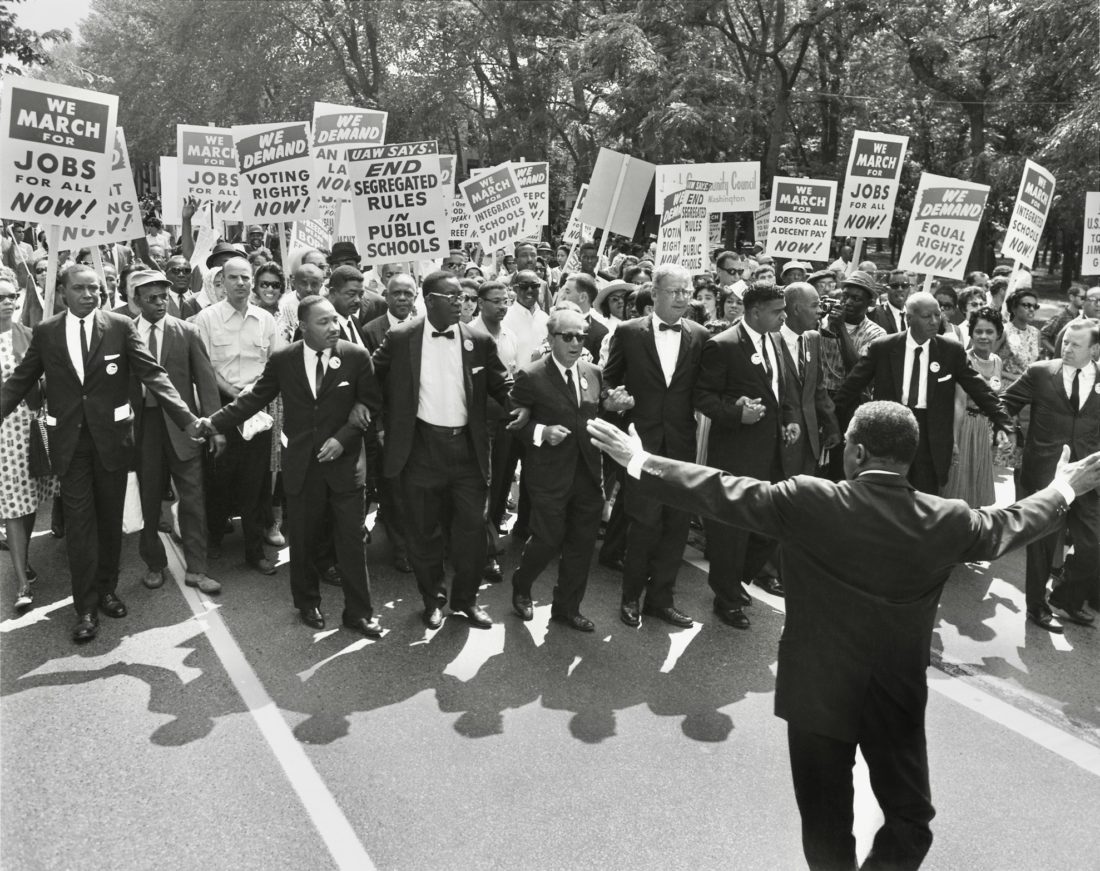
Public Justice President Preston Tisdale Commemorates the 1963 March on Washington
Photo of the 1963 March on Washington for Jobs and Freedom courtesy of the National Archives at College Park, Public domain, via Wikimedia Commons
Tens of thousands of people are expected to gather on Aug. 26 to commemorate the 60th Anniversary of the 1963 March on Washington for Jobs and Freedom – a march and rally widely remembered for Rev. Martin Luther King’s “I Have A Dream” speech.
For Public Justice Board President Preston Tisdale, the anniversary is personal: his grandfather attended the March, his parents were leaders in Connecticut’s Black civil rights movement, and he got to hear and be inspired by Rev. King, as well.
“The March on Washington was a pivotal point,” Tisdale recalls. “The civil rights movement was going full steam. Both of my parents were very active in the civil rights movement. My grandfather went to the March on Washington in ‘63. And so, it was a galvanizing aspect to the civil rights movement that that March engendered.
“I had the privilege of seeing Dr. King speak twice when he came to Bridgeport,” Tisdale continues. “I could have listened to him speak for hours. He was just mesmerizing. And he always made it a point to speak to the youth in the audience. He made it front and center, and he reinforced these ideas which have been passed on by family and oral tradition. But he was just such a spectacular communicator, an orator.
“The thing about the civil rights movement was there was tremendous optimism that change could come about,” Tisdale says. “And that March — when that happened — that was a very important part of that whole optimism….You know, there was a certain amount of frustration because, at that particular point in time, it looked as if the Civil Rights Bill had been bogged down in Congress and was not going to go through….And so that added momentum to the determination to see that the Civil Rights Act would pass. Our local civil rights organization activists were working hard for that and it gave them even more impetus. That March was incredibly important and consequential.”


